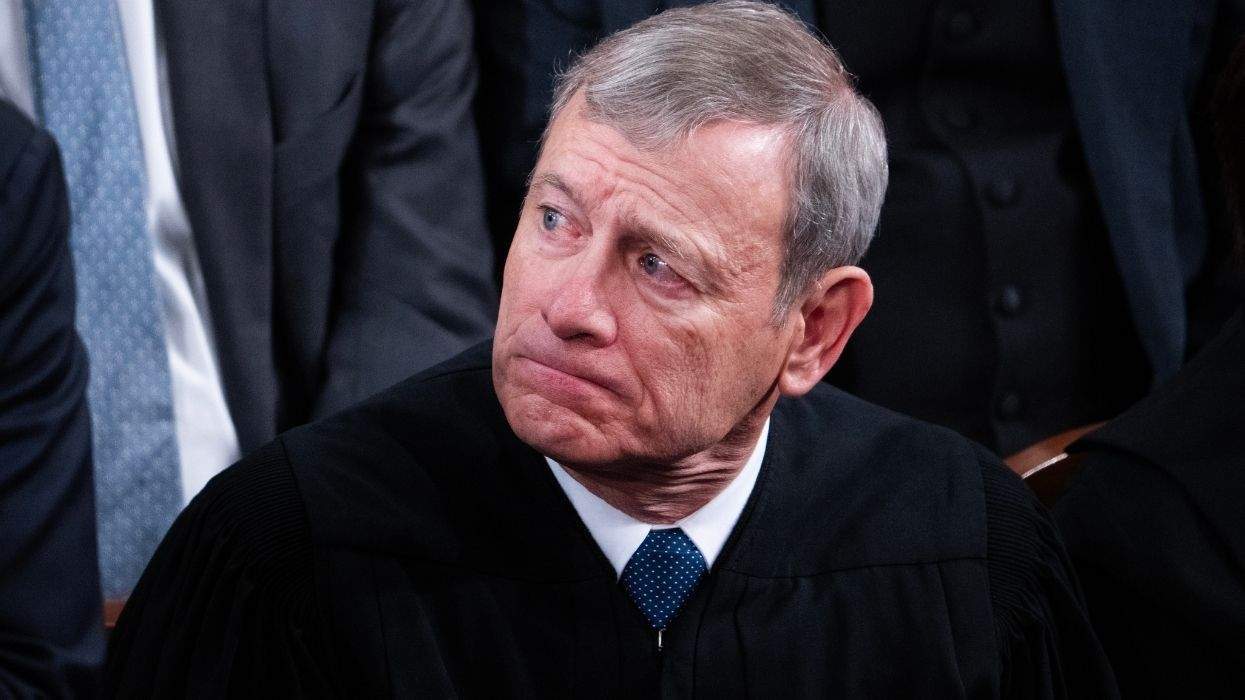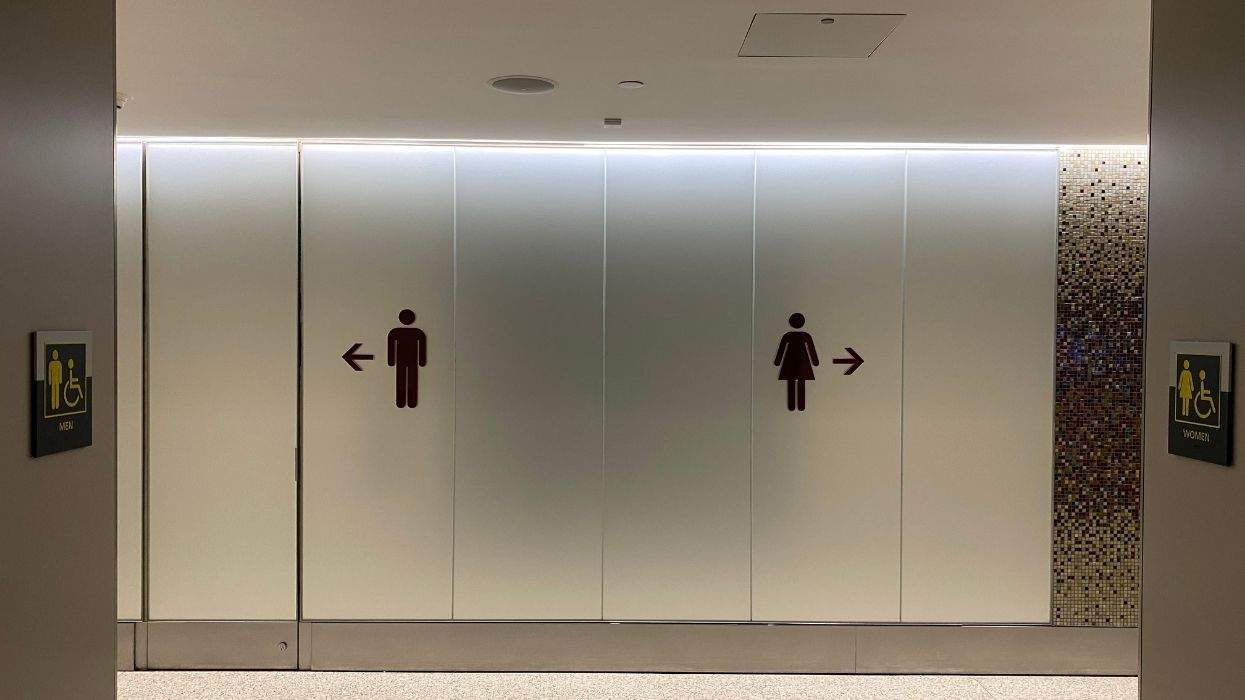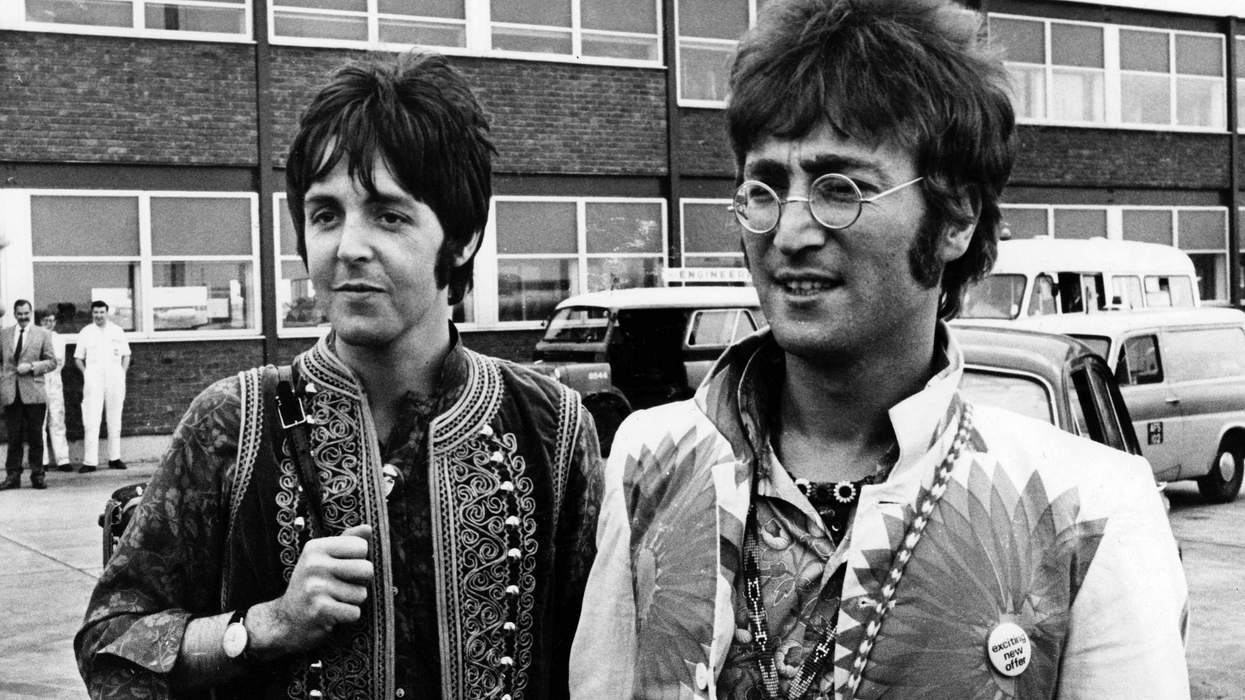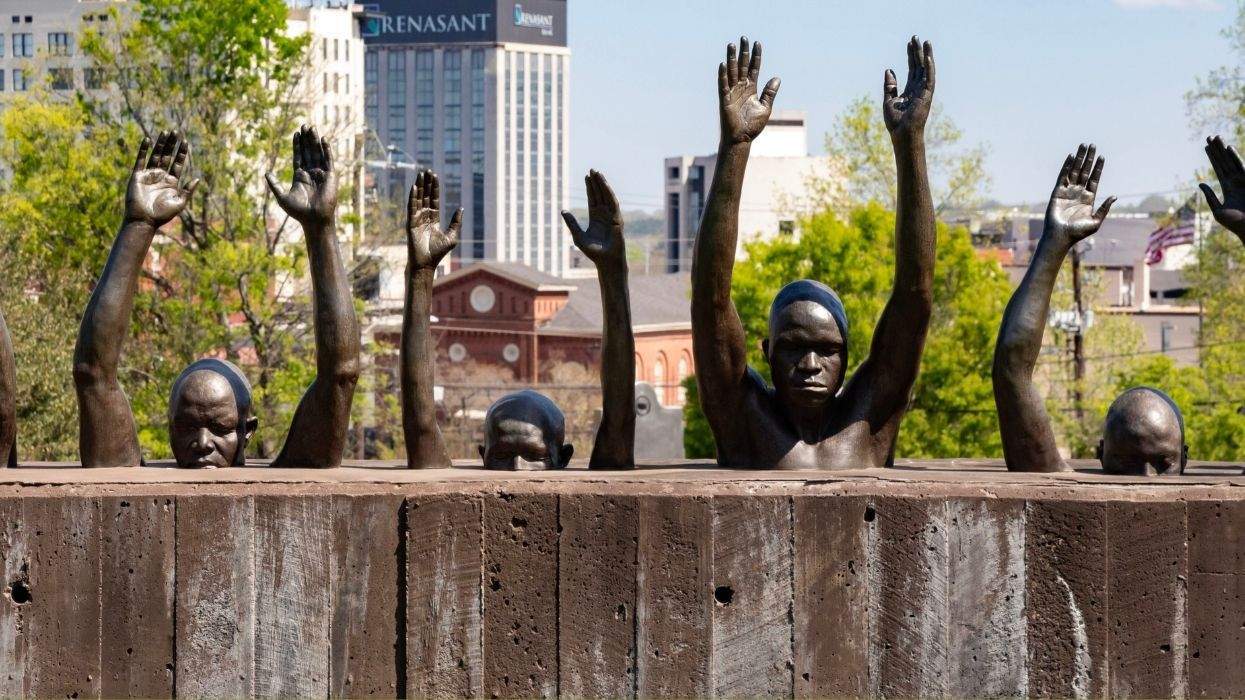In the week after Barack Obama's historic victory, gays and lesbians are pondering another historic, albeit less victorious, moment of their own. Three anti-gay marriage propositions passed -- in Florida, Arizona, and California. In Arkansas gay people were barred from adopting children. Now the real fight begins.
The news has centered largely on California's Proposition 8, which garnered much of the pre-election publicity, due to the high-profile involvement of people on both sides of the issue -- celebrities like Brad Pitt and Steven Spielberg for the No on 8 faction, and James Dobson's Focus on the Family and Mormon Church members, major contributors to the passage of the proposition.
Likewise, post-election press focused heavily on Prop. 8's passage. Articles dissected how the nation could elect its first black president and pass a law that injects discrimination into a state constitution -- made more unbelievable still because California is a harbinger for forward-thinking progressive movements, usually followed in time by the rest of the country.
The National Review Online's Jonah Goldberg, in a piece titled "Progressivism's Achilles Heel," writes, "Arguably the most liberal presidential nominee in American history, Obama has given some very old ideas an aura of new coolness. Congrats on all that. Hope it works out for you." Then the writer points out that gay marriage bans "have ultimately passed in all 30 of the states in which they were on the ballot."
Goldberg says that if Obama hadn't pulled a huge number of minority voters to the polls, the proposition would have been shot down. Prop. 8 "would have failed in the Golden State if it were up to white voters, who opposed it by a 51-49 ratio. What carried it over the top was enormous support from black voters, with about 70% of them backing it. Hispanics also supported the ban by significant, though smaller, margins. In Florida, where a similar ban required a 60% margin, Amendment 2 just barely passed, getting 60% of the white vote. The cushion came from blacks, who voted 71% in favor, and Latinos, who voted 64% in favor."
His point is one that has been the centerpiece of the post-election analysis. Black voters are essentially getting much of the blame, to which Raymond Roker, a Huffington Post blogger and founder of Urb magazine, responds, "Stop Blaming California's Black Voters for Prop. 8." Roker explains that he voted against 8 and that black voters are not solely responsible -- "Don't forget the 49% of Asians who voted for Prop. 8. And the 53% of Latinos who fell in line for it too. And then there is the white vote in support of 8. Slightly under 50% percent of them, a group representing 63% of California voters, voted 'Yes' on 8."
Roker suggests that certain ethnic groups aren't the ones to blame and says that it's the religion, stupid. "Surveys showed religion played a major role in voters' decisions. Even No on 8 supporters have admitted that their camp was too complacent, arrogant and far too unorganized."
USA Todayran an interview with singer-songwriter Elton John in which he proclaimed that using the word marriage is what upsets voters. John is in a civil partnership with David Furnish but said, "We're not married. Let's get that right. We have a civil partnership. What is wrong with Proposition 8 is that they went for marriage. Marriage is going to put a lot of people off, the word marriage."
The Los Angeles Timesreported on another theory making the rounds: that it wasn't religion or ethnicity that determined the outcome -- it was age. Quoting the new poll boy wonder, Nate Silver of FiveThirtyEight.com:
"At the end of the day, Prop. 8's passage was more a generational matter than a racial one. If nobody over the age of 65 had voted, Prop. 8 would have failed by a point or two. It appears that the generational splits may be larger within minority communities than among whites, although the data on this is sketchy."
Meanwhile, coverage of the protests around California appeared with increasing frequency in the Los Angeles Times. One article discusses the difference in tone between the election ads run by the anti-Prop. 8 bigwigs and the grassroots campaign being propelled by individuals on Facebook and other Internet sites. The No on 8 leadership, writes The Times, relied on "a careful, disciplined campaign with messages tested by focus groups and with only a few people authorized to speak to the media. They lost."
The new movement is more like the Wild West, with protests seemingly every two days somewhere in the state. The article notes that the No on 8 leadership is being faulted by gay citizens. "Others have said that the campaign failed to engage people enough -- including some gay activists now organizing protests."
Indeed, this led the Napa Valley Register to ask, "Where was the No on Prop 8 support BEFORE the election?"
Writes the editor, Dan Ross: "Hey protesters, if this was so important to you, why didn't you get out to the opposite street corners and work to generate support for your position? Why wait until after the decision is made by voters to get outside and be so vocal about something you feel so passionate about?"
The Sacramento Beereported that in the final weeks of the campaign, the No on 8 contingent was "in turmoil." Key staff members were kicked to the curb, and the new people discovered a complacent, sluggish organization that was "slow to react," according to the Bee's story.
The last-ditch effort included ditching Ogilvy Public Relations Worldwide for a Sacramento-based group; bringing in political consultants from both parties; deemphasizing the "Equality for All" slogan, which left people wondering how to vote, and emphasizing "No on 8"; and pushing campaign manager Steve Smith out of the seat of power.
It was too little too late.
Dennis Mangers, cochairman of the No on 8 Northern California Committee, said next time, "we'll have to do better."
While Prop. 8 got the lion's share of post-election coverage, Dan Savage, editorial director for Seattle newsweekly The Stranger and well-known sex columnist, penned an op-ed for The New York Times about the the Arkansas measure, approved by 57% of voters, that bars unmarried couples from being foster parents or adopting children.
In his piece, "Anti-Gay, Anti-Family," Savage writes, "While the measure bans both gay and straight members of cohabitating couples as foster or adoptive parents, the Arkansas Family Council wrote it expressly to thwart 'the gay agenda.'" Instead of being "pro-family," the law is antifamily and will end up denying a family to some of the the 3,700 children in state custody, 1,000 of whom are eligible to be adopted.
And, worse, he says, "The overwhelming majority of these children have been abused, neglected or abandoned by their heterosexual parents."
Savage notes that the architects of this bill are hoping to introduce similar bills in other states. He concludes: "The loss in California last week was heartbreaking. But what may be coming next is terrifying."















Charlie Kirk DID say stoning gay people was the 'perfect law' — and these other heinous quotes
These are some of his worst comments about LGBTQ+ people made by Charlie Kirk.